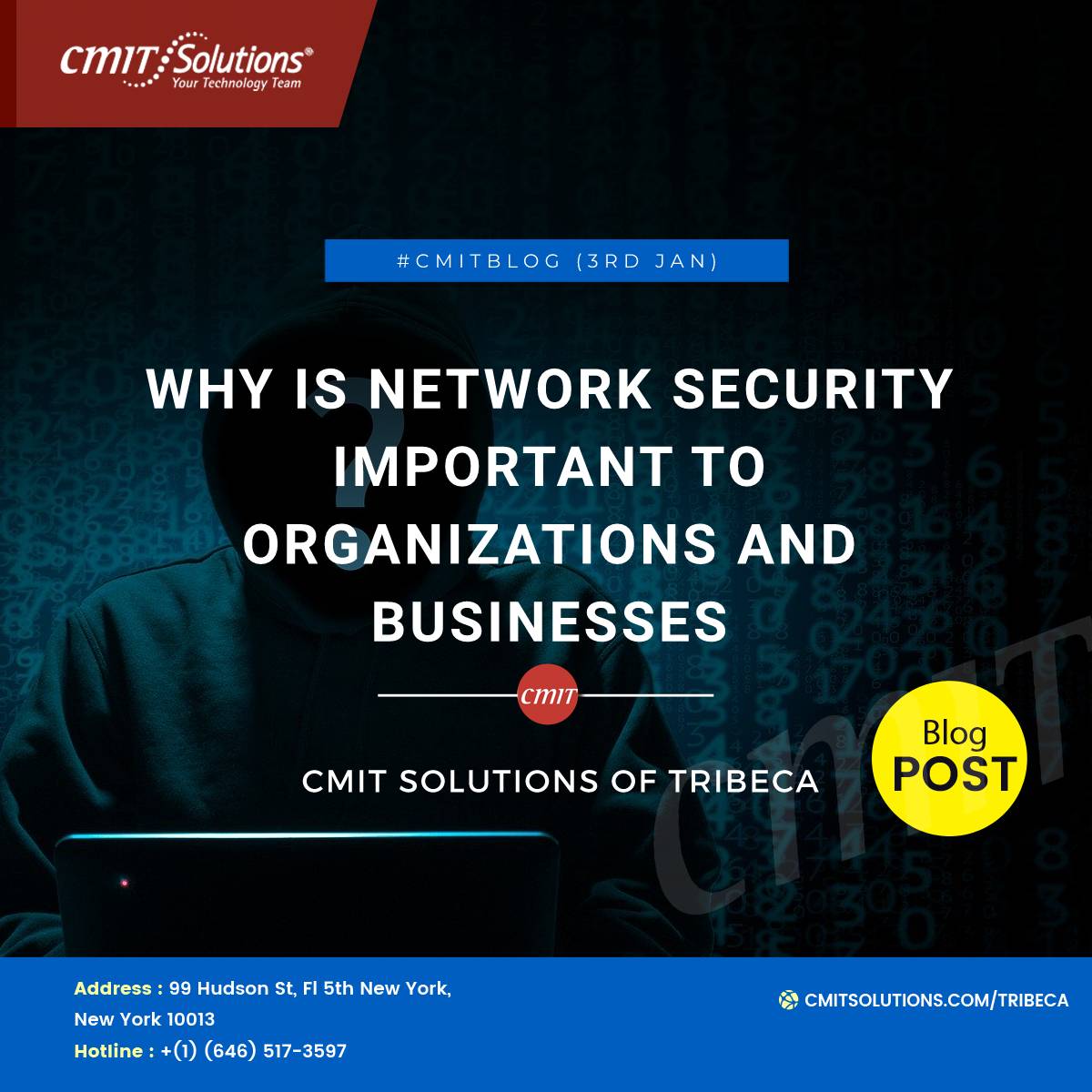A cyberattack is one of the most significant risks to a business’s success. Network security safeguards your data whether you run a large corporation or a small business, and a disaster recovery plan ensures you can recover in an emergency!
Network security is also required for organizations to comply with privacy regulations. In this piece, we’ll go through some of the factors that make security crucial for your company. But let’s first grasp the fundamentals. Business security is essential, whether you’re in-house or seeking network security services.
Network security: What Is It?
Network security is a collection of defense mechanisms designed to safeguard network systems against unauthorized access, tampering, and other dangers. As a consequence, technology like computers and other gadgets may operate safely.
Network security consists of several sophisticated anti-hacking solutions. It incorporates specialized equipment, programs, workflows, and settings to prevent intrusion. Well-crafted solutions are crucial to instruct professionals on how to protect a network correctly.
Network Security Types
Several different kinds of network security solutions have been created over time to stop cybercrime. Let’s examine a few of them:
-
Access Management
Users who have access to a network are managed using unique methods in this system. Access to the network is restricted by security measures so that only authorized users are permitted.
Unauthorized devices or users are therefore prevented from accessing the network.
-
Firewalls
One popular kind of network security firewall. They were created to serve as a firewall between networks and the internet. Firewalls use a set of established rules to decide which traffic to block or let through to the network.
-
Antivirus and malware protection software
Common assaults that might harm the data on your network include viruses and malware. A grid can be invaded by specific versions, which can damage sensitive data. Some variants, however, create a backdoor that hackers can use to access your network.
Your computers are monitored and scanned for unusual activities by antivirus software. While antimalware looks for malware, stops it from operating and offers solutions for getting rid of it.
-
Security for Email
Many security risks can enter your network via email, including phishing, malware, and scam links.
Incoming suspicious emails can be blocked by email security software. Additionally, it limits the number of specific types of data in emails sent out.
-
Web Safety
By blocking online-based attacks from attacking endpoint devices, web security protects networks. Any piece of hardware that is linked to a network is an endpoint device. Endpoint devices include computers, smartphones, and printers.
One web security solution is a web filter. It makes use of a set-up database with an allowlist and blocklist. The network can safely utilize the allowed domains in the allowlist. Known dangerous environments that potentially breach the web are included on the blocklist.
Every website on a blocklist is blocked by web filters, preventing people from visiting them.
-
Private Internet Access (VPN)
An endpoint connected to a network can have a secure connection thanks to a VPN.
To protect the network from roaming threats, it encrypts the connection. It may also be applied to protect a web-browsing endpoint.
Network security is necessary for your business for the following reasons:
-
To Protect Business Data
Significant damages for the firm might result from losing crucial data due to malware or phishing. Small firms might eventually fail if they can’t bounce back. Network security protects your personal and commercial data, preventing losses.
-
To Protect Client Data That Is Shared
Organizations frequently gather customer information for marketing and other uses. Network security protects your data from malicious intrusion and upholds the legitimacy of your company.
-
To enhance network effectiveness
Because no harmful software is present, a secure network is lovely and practical. Ensuring seamless operation, network security, and a sound system increase network performance.
-
To Prevent the Invasion of Ransomware
One of the worst cybersecurity problems is ransomware. Hackers use them as a type of virus to access your database. They threaten to delete, release, or block your data if you don’t pay a ransom.
These assaults have cost several organizations millions of dollars. You can defend your data from a ransomware assault with properly implemented network security.
-
Comply with privacy laws and rules
Certain firms can operate under privacy rules if their networks are secure. Data about clients and employees are better protected against security lapses.
The Securities and Exchange Commission (SEC) and the Financial Industry Regulatory Authority (FINRA), for instance, both keep an eye on financial institutions and private equity firms (FINRA).
-
Prevent Identity Theft
Cybercriminals might steal your brand name if your network security is weak. They can steal your identity and commit fraud by invading your systems. Establish operational security for your company to prevent this.
How To Ensure Business Network Security
- Install a firewall. To safeguard your network, it serves as your first line of defense.
- To encrypt and safeguard your network connections, use a VPN.
- Install antimalware software to check for, identify, and remove viruses and malware.
- Ensure that your firmware is updated often. Use a security policy that checks for updates to plug security flaws swiftly.
- Make the passwords for your corporate routers WPA2. It is excellent at preventing illegal access to the Wi-Fi network.
- Educate your personnel about security awareness.
- Keep in mind to back up your data at a location with high security.
- To prevent expensive harm brought on by cyber security concerns, develop a disaster recovery plan (DRP).
Checklist for Business Network Security
As a company owner, use the following checklist to maintain your network secure:
Observe the devices and software that are linked to your company network.
- Update software and operating systems often to take advantage of new security measures.
- Be cautious about limiting who may access your network. Use multiple authentications to restrict access, if at all practicable.
- Each networked device should have its own set of login credentials. Secure the connections of distant workers with a VPN.
- To inform your staff about security procedures, create a security awareness strategy.
- For increased email and website security, use security filters.
- To safeguard endpoint devices, install antivirus software and firewalls.
- To reduce data loss, create a data recovery strategy and back up your data.
- Make a preventative strategy to stop security breaches.
- Conduct frequent penetration testing and vulnerability testing.
Final Reflections
It would help if you prioritized network security for your company. It incorporates sophisticated security mechanisms. Sensitive data is protected by security, which also enhances network performance and deters criminality.
To protect your network, install firewalls, antimalware programs, and other security software on your devices. Additionally, implement network access restrictions, train your team, and develop a plan for data recovery. Contact us to ensure your business network is safe, whether you are a startup firm or an internal team wanting to outsource business network security services.








